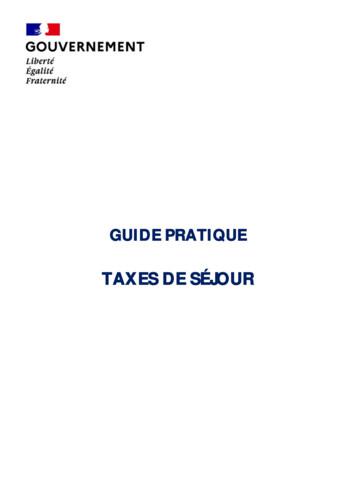Four Western Views Of Nature - University Of Wisconsin-Oshkosh
Four Western Views of NatureOverview Natureas inferior: Transcendental dualism Natureas chaotic & dangerous: Puritanism Natureas orderly & useful: The Enlightenment Natureas sublime: Romanticism
Transcendental Dualism:nature as separate and inferior“Dualism”: binary split into two. “Transcendental”: one ofthe two is higher and is related to transcendental reality. Developed in ancient Greek philosophy, revived in 18thcentury rationalist philosophy.v There are two realms of reality: the natural world, and atranscendental world, which has highest spiritual reality.v Human nature is dualistic: mind versus body, reasonversus emotions, with mind and reason corresponding tothe transcendental realm, the body and emotions part ofthe natural world.
Transcendental DualismSocial dualism: sex and race showed same dualism:men (associated with mind and reason) higher thanwomen (associated with body and emotions).v Nature-culture dualism: Culture is associated withmind, males, and the transcendent. Nature isassociated with body, females, and is inferior toculture.v Domestic and tame animals are superior to wildanimals.v
Transcendental Dualism“It is clear that the rule of the soul over the body, and themind and the rational element over the passionate, isnatural and expedient; whereas equality of the two or therule of the inferior is always hurtful. The same holds goodof animals in relation to men; for tame animals have abetter nature than wild, and all tame animals are better offwhen they are ruled by man; for then they are preserved.Again, the male is by nature superior, and the femaleinferior; and the one rules, and the other is ruled; thisprinciple, of necessity, extends to all mankind.”--Aristotle, Politics
Puritanism:Nature as dangerous chaosAssociated particularly with early Protestant John Calvin(1509-1564) and Puritanism.v A fallen world of nature: when Adam fell from Grace,his world also fell – we lost the Garden of Eden.v Nature is chaotic, disorderly, ever-changing withoutpattern or predictability, & thus no intelligible.v Nature as fundamentally dangerous.v We need either to wall out the wilderness, or conquer andtame it and turn it into a Garden based on human spiritualdesign and control.
The Enlightenment:Nature as Orderly & UsefulThe “Enlightenment”: Particularly the 18th century, butcontinuing today.v A response against medieval faith, “superstition,”religious wars, and witch hunts.v Focus on human worldv Optimistic concerning knowledge (reason & science),society (movement toward democracy & human rights),material well being (allied with scientific andtechnological advances).
The Enlightenment and NatureNature is orderly, acting according to natural “laws,” andworks like a clock.v We can understand natural laws through science andreason.v Our scientific knowledge enables us to have power overnature and manipulate it for our benefit – the rationaluse of nature.v “Mechanism”: treating nature as if it were a machine,lacking intrinsic value and almost as if it lacked life.(Animals as machines that don’t really suffer).v
Romanticism:nature as sublimeEspecially 1750-1870, but continuing today.v In part a reaction against the rationalism and mechanismof the Enlightenment.v Nature has high value. It is either a direct manifestationof spiritual reality, or has its own spiritual value.v There is a close correspondence between the naturalworld and human nature.v Social vision: simpler, pastoral lifestyles close to natureare superior to the nightmare of urban technology.
RomanticismReason is suspect. The goal is not abstract knowledge butcommunion. Intuition, emotions, & the contemplation ofbeauty have particular value.v The arts are particularly valued as a medium forrepresenting the spiritual dimension of reality andexpressing sensitive experience of it.v The “Sublime” is prized: the awe-inspiring majesty ofnature, which suggests its spiritual dimension and ourplace but our smallness within it.v
Three Contemporary Views1.“Conservationism” and the ideal of naturalresource management2.“Preservationism” and the wilderness ideal3.“Sense of Place” and the bioregional ideal
“Conservationism”v Notour general term of conserving nature, but aspecific philosophy of resource management.v Began in Europe in the eighteenth century, a formof the Enlightenment’s rational search fororder, progress, and material well-being.v Championed around 1900 in the U.S. by GiffordPinchot, the “father of American forestry.”
Conservationism & resource managementv Goalis using nature for the benefit of both currentand future human generations.v “Anthropocentric”: nature’s value is only foundin its use for us. By itself, it has no moral orspiritual value in itself.v Nature is something to be controlled, managed,and consumed by humans. Nature unused byhumans is a waste.v This is the dominant view in government policy.
“Preservationism”v Championedby John Muir (1838-1914),Wisconsin-born California nature writer.v Proposed as an alternative to the anthropocentricconservationism of Pinchot.v “Biocentric”: nature has intrinsic value. The idealis to preserve nature as it is for its own sake.
Preservationism & wildernessv Theproper human “use” of nature is aesthetic andspiritual, which ideally leaves natureundisturbed.v Basis of the “wilderness” ideal: truest nature iswhere humans have not shaped the natural world –human impact is negative, humans are essentiallyalien.
“Sense of Place”Ideal is to become a true “inhabitant.”v This involves knowing one’s place intimately andextensively: native plants, seasonal patterns, the “feel”of a place.v It involves cultivating a sense of identity with one’splace: you are a member of one’s place just as thebirds and trees are.v Basis for “bioregionalism” and much contemporarynature writing.v
And Japan?v Keepthese in mind when we look at the views andvalues concerning nature in China and Japan.v These views have some similarities to those in theWest, but in many ways they are quite different.
Nature is orderly, acting according to natural "laws," and works like a clock. ! We can understand natural laws through science and reason. ! Our scientific knowledge enables us to have power over nature and manipulate it for our benefit - the rational use of nature. ! "Mechanism": treating nature as if it were a machine,
Fiche n 1 : La taxe de séjour en chiffres Guide pratique : Taxes de séjour 8 0 500 1000 1500 Nature n 1 Nature n 2 Nature n 3 Nature n 4 Nature n 5 Nature n 6 Nature n 7 Nature n 8 Nature n 9 Taxe au réel ou taxe forfaitaire ? Source : Fichier téléchargeable sur www.impots.gouv.fr du 29/11/2019
An Example Dashboard An Integrated Problem Management Paradigm Use the graphics and integration capabilities of the Tivoli Enterprise Portal to provided custom dashboard views targeted for specific audiences – Technical views, Operational views, Alert management views, SME views, End to en
RAM/2013 TOTAL VIEWS: 20.8M GO PRO/2014 TOTAL VIEWS: 18.2M 1.4M VIEWS IN 2016 2M VIEWS IN 2016 1.7M VIEWS IN 2016 5M COMBINED VIEWS IN 20 16 Iconic ads continue to thrive on YouTube long past the moment. Old Spice's “The Man Your Man Could Smell Like” (2010), Ram's "Farmer" (2013) and GoPro and Red Bull’s “Red Bull Stratos - The
modern views on the role of writing, espoused by scholars from the 18th, 19th and 20th centuries. These modern views often link writing to the idea of ‘civilisation’, believing that without it a society cannot be called civilised. The modern views will be contrasted with the ancient views of early writing, both from the perspective of
Association Translations and adaptations Most-viewed adaptations 2.4 million views Creative animation by Stanford Center for Digital Health team 346,000 views Filipino animation by the World Health Organization 198,290 views 52,369 views English reading with with singer and musician Howard Donald, by the World Health Organization 16,371 views
4.2 Teachers views on Vedic Mathematics and its overall influence on the Students Community 101 4.3 Views of Parents about Vedic Mathematics 109 4.4 Views of Educationalists about Vedic Mathematics 114 4.5 Views of the Public about Vedic Mathematics 122 Chapter Five OBSERVATIONS 165 5.1 Students' Views 165
grand views at millennium estates grand views is the city's newest community comprising 476 luxurious townhouses and villas. offering spectacular views of the grand stand, where dubai world cup - the most prestigious and richest horse racing event in the world, attracts the most discerning enthusiasts worldwide. grand views offers the best of .
A02 x 2 One mark for the purpose, which is not simply a tautology, and one for development. e.g. The Profit and Loss Account shows the profit or loss of FSC over a given period of time e.g. 3 months, 1 year, etc. (1) It describes how the profit or loss arose – e.g. categorising costs between cost of sales and operating costs/it shows both revenues and costs (1) (1 1) (2) 3(b) AO2 x 2 The .























